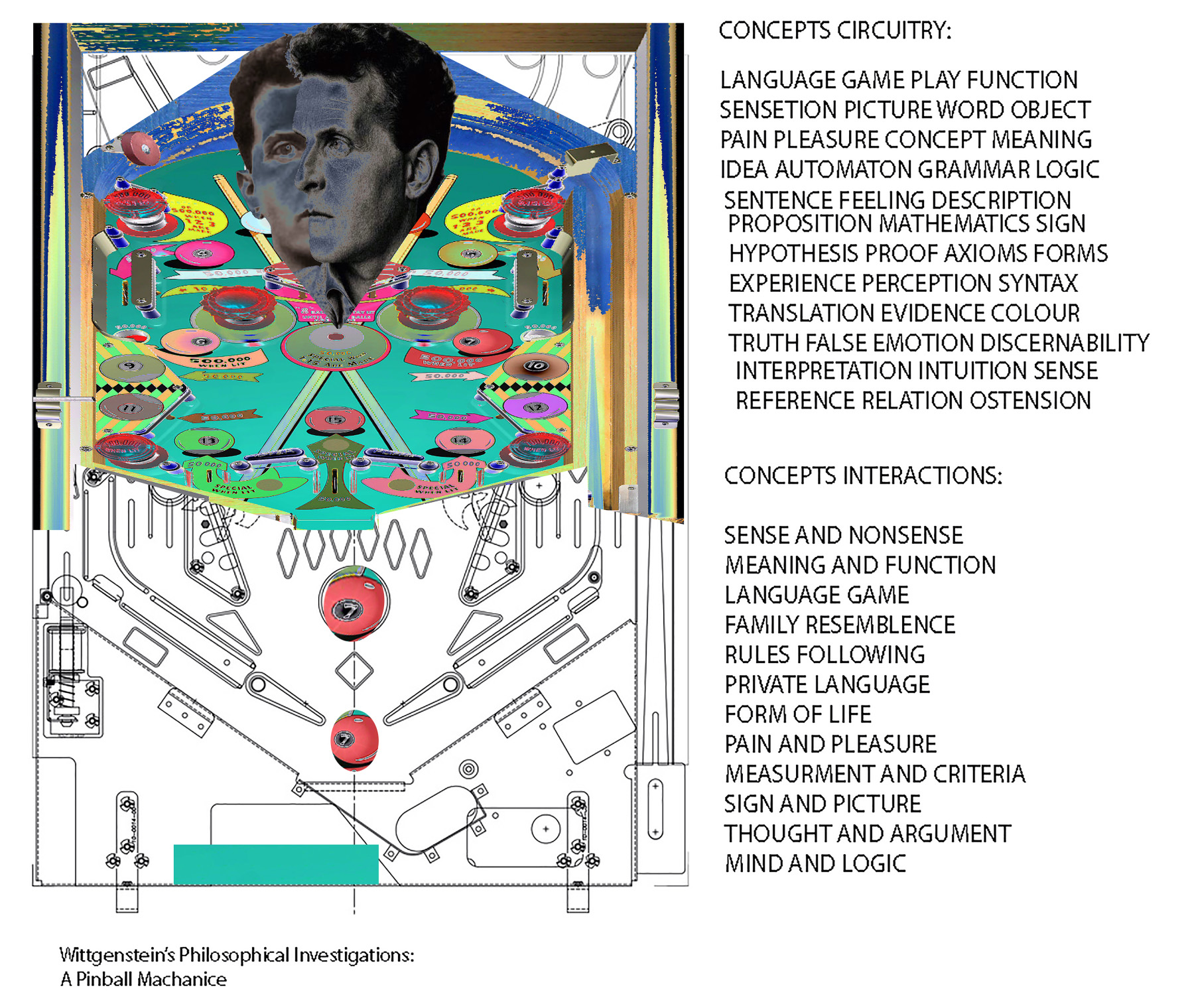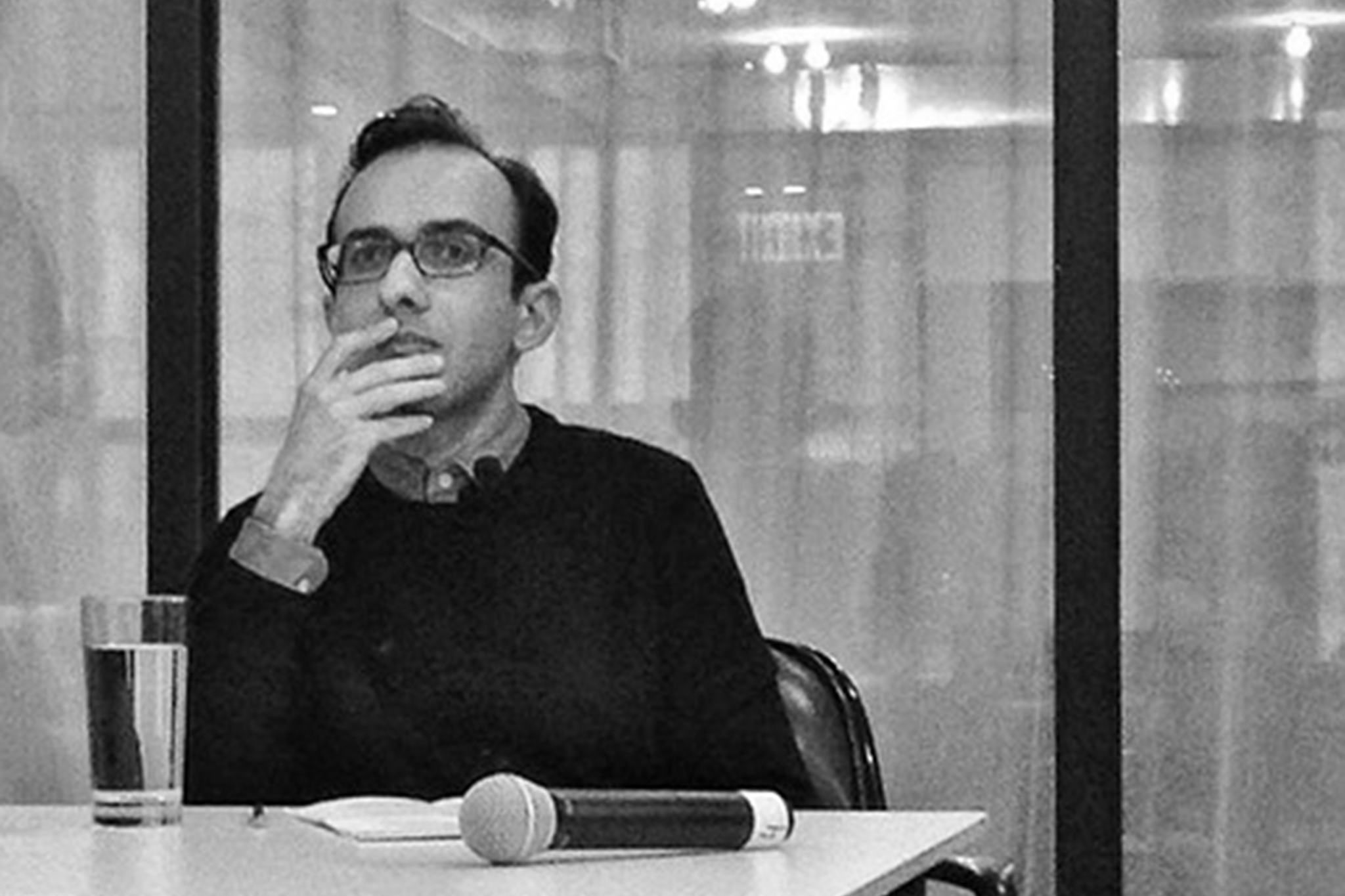Reza Negarestani
is a philosopher. He has lectured and taught at numerous international universities and institutes. His current philosophical project is focused on rationalist universalism beginning with the evolution of the modern system of knowledge and advancing toward contemporary philosophies of rationalism, their procedures as well as their demands for special forms of human conduct. His latest book, Intelligence and Spirit (Urbanomic / Sequence Press, 2018) is focused on philosophy of intelligence at the intersections between cognitive sciences, German idealism, and theoretical computer science. He is currently directing the Critical Philosophy programme at the New Centre for Research and Practice.
“The bimodalization of the universal to its global and local horizons is a navigational strategy which must be conceived through a local rupture, a regional discontinuity.”

drawing / diagram made by philosopher friend Adam Berg on Wittgenstein's life forms,
courtesy of Reza Negarestani
courtesy of Reza Negarestani

Reza Negarestani at e-flux, April 2014,
cropped image, source: Wikipedia
cropped image, source: Wikipedia
HUMAN RE-COGNIZED, LIFEFORM RE-MADE by Reza Negarestani
1. What work are you presenting?
RN: The work I will be presenting is a lecture entitled ‘Human Re-Cognized, Lifeform Re-Made’. This talk addresses the problem that any concept of the alien is analogically predicated on the concept of the human. Yet the human itself is not a fully totalized idea. Thus, any coherent account of the encounter with the alien should begin with the re-cognition and re-making of the human as a lifeform in the sense Wittgenstein has used this term. It is the outside-view of the human as an incomplete lifeform—one that can be rethought and remade—that coincides with the greatest estrangement in which the concepts of the human, the alien and positive alienation become one.
RN: The work I will be presenting is a lecture entitled ‘Human Re-Cognized, Lifeform Re-Made’. This talk addresses the problem that any concept of the alien is analogically predicated on the concept of the human. Yet the human itself is not a fully totalized idea. Thus, any coherent account of the encounter with the alien should begin with the re-cognition and re-making of the human as a lifeform in the sense Wittgenstein has used this term. It is the outside-view of the human as an incomplete lifeform—one that can be rethought and remade—that coincides with the greatest estrangement in which the concepts of the human, the alien and positive alienation become one.
for more insight into Reza Negarestani's work visit
https://www.urbanomic.com/contributor/reza-negarestani/
Quote:
Where is the concept (localization,ramification,navigation)', When Site Lost the Plot, 225–251, Robin Mackay (Editor), MIT PRESS, Mar 2015
This text has been one of the main inspirations for the exhibition installation When systems fail we feel a tinggling of freedom on the top of our nose by Yael Wicki
Quote:
Where is the concept (localization,ramification,navigation)', When Site Lost the Plot, 225–251, Robin Mackay (Editor), MIT PRESS, Mar 2015
This text has been one of the main inspirations for the exhibition installation When systems fail we feel a tinggling of freedom on the top of our nose by Yael Wicki